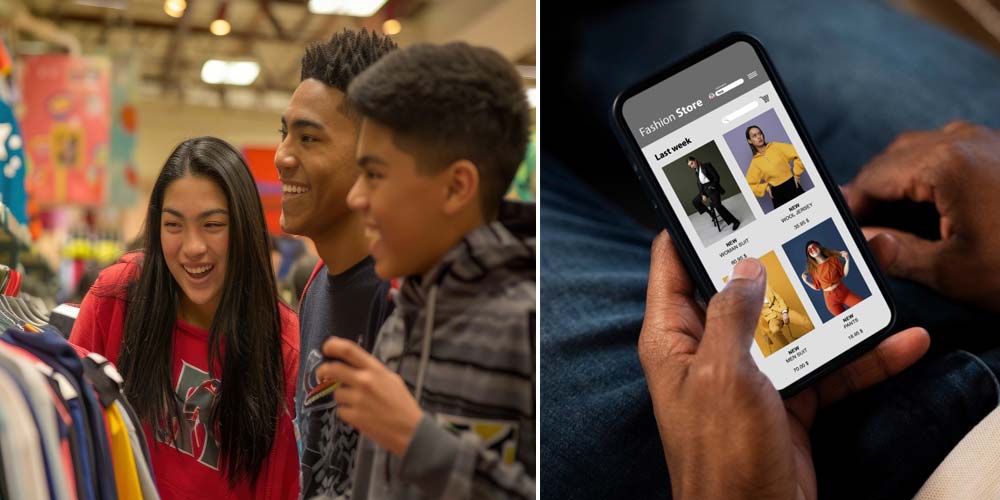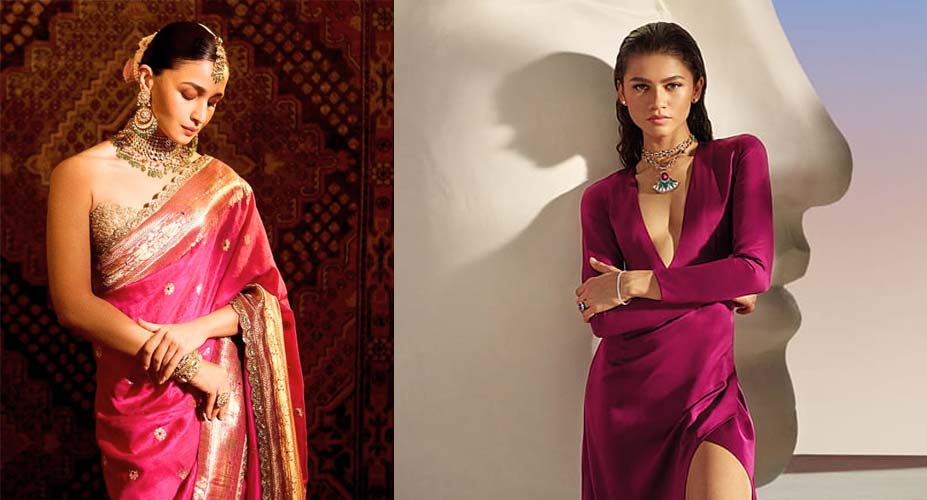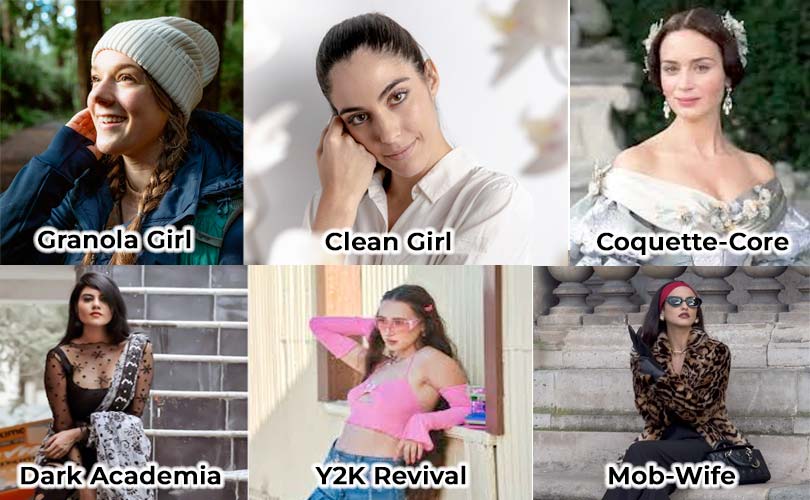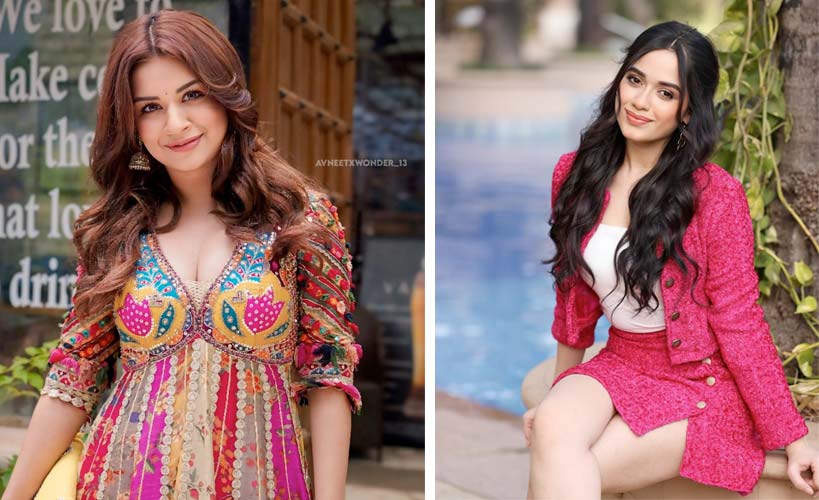“Wait, isn’t that dress too young for you?” We’ve all heard it. Once, age-appropriate fashion was a rule everyone quietly obeyed. Teens shopped in “Juniors,” adults in “Contemporary,” and parents stuck to “Formal.” But social media didn’t just blur those lines — it erased them.
As a fashion and lifestyle influencer writing for TrendVisionz, I’ve seen how TikTok aesthetics, Instagram trends, and global e-commerce rewired style choices. Scroll through your feed and you’ll spot 40-year-olds pulling off “coquette-core” and teenagers experimenting with “quiet luxury.” Bollywood adds to the mix. At 22, Zubair often embraces a teen-inspired style. In contrast, Avneet Kaur, the same age, leans into a more mature and glamorous aesthetic.
- Retail floors replaced by endless digital feeds
- Style now dictated by algorithms, not age
- Self-expression valued over birth year
This article unpacks how social media erased age codes and redefined fashion across generations.
Also Read:
- Small Lifestyle Changes: How Simple Daily Habits Improve Your Health
- Linen in Summer: How Bollywood Celebs Are Redefining Sustainable Fashion
From Floor Plans to Algorithms – How Retail Changed Everything
Fashion retail once acted like a map of life stages. Department stores guided you through “Juniors,” “Contemporary,” and “Mature” sections, signaling where you belonged. But with online shopping, those physical cues collapsed, and algorithms took over the role of tastemaker. As Namita Mahajan, Co-founder of TrendVisionz, explains:
“Fashion today is about balancing timeless, quality pieces with your personal style. It’s not about outdated rules — it’s about creating looks that feel comfortable, flattering, and true to your personality- Namita Mahajan
Her words remind me that online shopping and age no longer align. Digital aisles have erased the boundaries that once guided consumers by generation. As someone in my 20s learning from her 50s perspective, I see fashion less as age-coded and more as confidence-driven — timeless lessons across generations.
The Death of Generational Store Segmentation
Walk into any mall in the 2000s and you knew your floor: juniors for teens, contemporary for young adults, mature for older shoppers. These fashion trends by age shaped how we dressed. Today, e-commerce offers one endless aisle where 14-year-olds and 40-year-olds click ‘Add to Cart’ on the same crop top
- Generational floors dissolved into digital catalogs
- Algorithms replaced sales associates in guiding taste
- “You don’t belong here” signs vanished overnight
This shift erased fashion boundaries, turning style into a matter of personal choice rather than chronological age
Missing Middle – The Tween Retail Gap
Remember brands like Delia’s or Justice? They once bridged the awkward “too old for kids, too young for adults” stage. With those gone, tweens now shop directly from Zara, Shein, or H&M’s adult lines — blurring childhood faster than ever.
- Ten-year-olds styling from adult sections
- Emotional confusion in self-presentation
- No clear milestones in fashion identity

The absence of tween retail left kids to grow up online, often too quickly, guided by influencers rather than life stage.
Takeaway: With digital aisles stripped of age rules, personal expression dominates. Social media and e-commerce replaced traditional retail maps, redefining fashion as identity-first — where self-expression overrides generational norms, and age is no longer the dress code.
Social Media’s Role in Flattening Style Generations
Today the social media has become the great style equalizer. The popular social media platforms- TikTok, Instagram, and shopping apps have blurred age lines, grouping people into aesthetic tribes rather than generational categories. The TikTok fashion influence is turning micro-trends into global style. Whether you’re 16 or 46, you’re dressing not for life stage but for likes, reach, and algorithms.
Aesthetic Over Age
Platforms like TikTok and Instagram push trends across age groups with lightning speed. What once stayed teen-only or adult-only now lives side by side on the same feed. Dressing is no longer about the occasion — it’s about being algorithm-friendly.
- TikTok Shop generated $4.4 billion in global sales (Statista). According to a 2024 study1, platforms like TikTok and Instagram now shape fashion discovery and self-expression. Social feeds don’t just inspire — they set the rules.
- Live shopping sessions collapse generational boundaries
- Discovery is aesthetic-first, age-later
This creates a cycle where outfits are curated for the scroll, not real-world context. Even trends like quiet luxury, once seen as older and elite, are now embraced by teenagers exploring minimalist aesthetics.
The Bollywood Effect
Take Alia Bhatt, who seamlessly shifts from playful, teen-inspired looks to elegant couture, embodying different style ages in one scroll. Globally, Zendaya does the same — one day Gen Z streetwear, the next day old-Hollywood glam. Age-defying style icons are proving that confidence, not age, defines how trends are worn
Fashion is way bigger than that… there are no rules anymore. Fashion is… wearing what makes you feel comfortable and confident- Zendeya

Both celebs prove fashion today is less about age and more about performance.
- Celebrities styled across age brackets in a single week
- Style identity becomes situational, not generational
- Performance value outweighs age accuracy
Takeaway: With every scroll, the line between 16 and 46 blurs further. Social media rewards aesthetics over years lived, flattening generational style codes into one infinite wardrobe of visual possibility.
The Vanishing Milestones that Once Marked Style Shifts
For decades, fashion followed life’s timeline. Marriage, kids, jobs, and homes dictated when you swapped jeans for saris, hoodies for suits. But today, delayed milestones and shifting lifestyles mean those wardrobe transitions don’t arrive on schedule — if they arrive at all.
For Gen Z, fashion isn’t about ticking age boxes — it’s about self-expression, comfort, inclusivity, and sustainability.
When Life Doesn’t Follow the Timeline
Traditional adulting markers aren’t as universal anymore. More and more people delay marriage, opt out of kids, extend renting years, and carve careers through the gig economy. Without clear life markers, the shift into ‘adult’ fashion loses momentum, and clothing tied to age boundaries steadily disappears.
- Marriage and kids delayed or declined
- 9-to-5 replaced by gig culture
- Less demand for formal, “adult” dressing
This freedom reshapes closets, keeping casual, comfort-driven choices in rotation far longer than before.
Function vs Fantasy
Instead of dressing for milestones, people now dress for moods, aspirations, and aesthetics. Trends like “old money” and “clean girl” thrive because fashion has become cosplay: slipping into a role you admire, not one life demands.
Focusing on age is boring. It’s much more interesting to think about style — Vanessa Bruno
- Wearing blazers without an office job
- Sporting gowns without red-carpet invites
- Choosing fantasy-driven looks for Instagram, not reality
Fashion is no longer functional first — it’s aspirational, digital, and deeply performative
Takeaway: With traditional life markers fading, fashion shifted from situational to aspirational. Age no longer dictates style; instead, aesthetics, moods, and fantasies shape how we present ourselves in a world without rigid timelines.
So, What Are We Dressing For Now?
If fashion no longer follows age or milestones, what drives our choices today? The answer lies in visual identity play. Instead of dressing for birthdays or boardrooms, people now curate looks for moods, aesthetics, and digital storytelling.
The Rise of Visual Identity Play
Fashion has become a mood board brought to life. TikTok micro-trends encourage us to dress for an aesthetic, not an occasion — from soft coquette-core to the bold mob-wife look or the outdoorsy granola girl vibe. Recipe developer and lifestyle creator Bella Bucchiotti describes the granola aesthetic as more than a style choice. In her guide, “How to Embrace Your Inner Granola Girl,” she writes…
Being crunchy in your lifestyle isn’t just about your leisure activities; it’s also about what you believe in. As a granola girl myself, I can attest to the importance of committing yourself to green habits.
- Dressing to match moods, not milestones
- Aesthetics like “clean girl” or “dark academia” dominate feeds
- Outfits built digital-first, practical later

As actress Jessica Alba, now in her 40s, puts it:
My style is more fun now than when I was younger. I can switch from preppy to boho to vintage — I have no attachment to one vibe anymore – Jessica Alba
Clothes today are less about where we’re going and more about how we’ll look online.
Is This Freedom or Confusion?
This freedom is exciting — anyone can reinvent themselves daily. But for younger audiences, it can also spark identity crises. Without style rules or guidance, experimentation sometimes leads to overwhelm, and the need for mentorship feels stronger than ever.
- Style liberation vs. lack of direction
- Identity shaped by fleeting aesthetics
- Growing demand for fashion guidance and role models
What feels like endless choice can easily tip into confusion, leaving many wondering which look truly represents them. Research shows that Gen Z fashion choices are heavily influenced2 by both brand and user-generated content online.

Takeaway: In a world without fashion rules, creativity thrives but clarity struggles. Style now reflects moods, not milestones — giving freedom, but also sparking a need for mentorship in navigating this boundless digital-first fashion universe.
Also Read:
- Mastering Remote Work Lifestyle: 10 Proven Work from Home Tips
- Women at 40: Redefining Midlife Wellness with Purpose
FAQ: Age-Appropriate Fashion
What does age-appropriate fashion mean today?
Age-appropriate fashion once meant dressing by life stage, but today it’s about self-expression. Social media trends, online shopping, and celebrity influence have erased age codes, letting people wear what feels authentic, regardless of birthdays.
Why has social media changed generational fashion?
Social media flattened style boundaries by pushing trends across ages instantly. Platforms like TikTok and Instagram create aesthetics-first dressing, where algorithms, not age, decide what’s popular, making generational wardrobes overlap more than ever before.
How can younger audiences find fashion direction in a no-rules era?
Drowning in trends, younger audiences sometimes lose clarity. By leaning on mentors, drawing from trusted icons, and embracing classic essentials, they can balance creativity with confidence in today’s digital-first fashion world.
Age Is Just a Style Number
Fashion’s age boundaries didn’t simply blur; their collapse signals a wider cultural reset Social media, e-commerce, and shifting life milestones have blurred generational wardrobes into one endless scroll of possibilities. This generational style shift reflects a cultural reset, where aesthetics matter more than chronology.
My entire team at TrendVisionz believes fashion should celebrate individuality — it’s about self-expression, never age. Our platform celebrates expressive dressing across ages, encouraging identity-first style while still respecting the boundaries that keep fashion fun, inclusive, and authentic.
Whether you’re 18 or 48, fashion is now about how you feel — not what your birth certificate says. At TrendVisionz, we celebrate fearless self-expression across every generation. Keep riding the trend wave with us — because style has no expiry date
Additional Resources
- Darshan, D., Soni, A., Godara, A., Rangani, Y., Dhupper, M., Chauhan, R., & Maseleno, A. (2025). The Impact of Social Media on Youth Fashion Consumption: Trends, Influencers, and Ethical Shifts. Greenation International Journal of Law and Social Sciences, 2(4), 298–307. https://doi.org/10.38035/gijlss.v2i4.312 ↩︎
- El-Shihy, D., Awaad, S. Leveraging social media for sustainable fashion: how brand and user-generated content influence Gen Z’s purchase intentions. Futur Bus J 11, 113 (2025). https://doi.org/10.1186/s43093-025-00529-3 ↩︎
Stay Connected with Me
Nupur Mahajan is a Fashion & Lifestyle Influencer, Digital Creator, and regular guest writer at TrendVisionz. Known for her impeccable style and relatable storytelling, she blends global fashion trends with everyday elegance.
✨ Explore my work: Trendvisionz | Guest Columns | Social Media Features
💌 Follow my updates: TrendVisionz Fashion & Lifestyle Newsletter
🌐 Join the conversation: LinkedIn – Digital Marketing, Content Creation World Group
📲 Connect with me: Instagram | Twitter | LinkedIn
My mission is to inspire confidence, celebrate individuality, and empower self-expression through fashion. Let’s redefine style together — because true fashion has no age.
✍️ A Note from Nupur
Independent digital content thrives with your support. Share a review if you enjoy my work, help us keep TrendVisionz free and fearless. Even $10/month makes a difference. Contribute via PayPal or email anujmahajan@trendvisionz.com



2 comments
I just like the helpful information you provide in your articles
[…] Posts Smart Insulation and Energy Efficiency Tips for Industry How Social Media Killed Age-Appropriate Dressing How Digital Marketers Can Leverage Alternative Funding Solutions Top Anonymous Crypto Exchanges […]
Comments are closed.